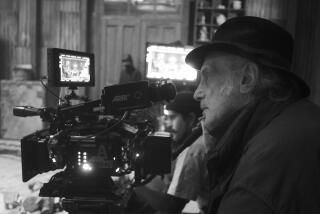Mexico film on Luis Donaldo Colosio slaying puts PRI in bad light
MEXICO CITY — A young presidential candidate pushes through a crowd of supporters in a barrio in Tijuana, apparently unaware as the barrel of a gun is placed at his right temple. Before anyone can react, the gunman pulls the trigger, exploding the skull. As the candidate falls, a second bullet rips into his body.
That much we know.
But the March 23, 1994, assassination of Luis Donaldo Colosio, a few months before he was expected to be elected, has never been solved to the satisfaction of many Mexicans, despite a six-year government investigation that concluded it was the work of a lone gunman.
Instead, the case has spawned a dizzying array of conspiracy theories and speculation over possible plotters, from cutthroat drug traffickers to members of Colosio’s Institutional Revolutionary Party, which ruled Mexico at the time. Some historians view the Colosio slaying as the blow that would propel the party, known as the PRI, to defeat in 2000 after seven decades of virtually unchallenged rule.
As Mexico considers whether to bring back the PRI, a new film stitches lingering suspicions about the killing into a political whodunit.
“Colosio, el asesinato,” which opened here June 8, has played to big crowds across Mexico, weeks before voters choose a new president. Most polls give a hefty margin to Enrique Peña Nieto of the PRI.
Though fictional, “Colosio” is unlikely to boost support for the party. It depicts the PRI-led government of the time as a snake pit of shadowy, Machiavellian figures, the kind of people who seem comfortable around suitcases full of money and just nasty enough to crush anyone in their way.
Producer Monica Lozano insists that the release wasn’t timed to influence votes. But she said the presidential race and summer movie season provided an ideal moment to prod Mexicans into thinking anew about the killing and other events of 1994, a tumultuous year that began with an armed uprising in the southern state of Chiapas and ended with a disastrous financial meltdown.
“Remembering the moment is very important because it is something we had denied and forgotten,” Lozano said. “The events of 1994 marked the next two decades, and I don’t think its history is finished being written.”
The film centers on a fictional semi-retired intelligence agent, Andres, who is assigned by the PRI’s secretary-general to run a secret parallel investigation, supposedly authorized by the president, of Colosio’s killing. (No names are used, but the president in 1994 was Carlos Salinas de Gortari. The party’s secretary-general was Francisco Ruiz Massieu, who was assassinated later that year.)
As the off-the-books inquiry unfolds, Andres and his team find clues pointing in every direction. The body count rises, suggesting a coverup, and suspicion swirls increasingly around the PRI’s security men and the alphabet soup of security agencies present at the rally.
The effect is like one of those parlor mysteries where everyone in the room has reason to want the victim dead: traffickers worried that Colosio would favor a rival gang; PRI hard-liners unnerved by his anti-corruption talk; rival politicians; members of the president’s inner circle, fearing lost influence.
The filmmakers don’t accuse anyone by name, but clearly don’t swallow the lone-shooter explanation. (Mario Aburto, the man eventually convicted of pulling the trigger, remains behind bars as the sole assassin.) One character, a veteran party member, labels the slaying a “state crime,” suggesting at least some involvement within the PRI-led government, which in its time insinuated itself into nearly all aspects of Mexican society, often through nefarious methods.
Director Carlos Bolado, who had made documentaries and recently finished filming a feature about the 1968 massacre of student demonstrators in Mexico City, said the Colosio movie was an “echo” of deep Mexican skepticism of official explanations.
“People say, ‘How can it be that a party that governs and dominates everything can’t solve these cases?’” Bolado said.
He said he hoped to awaken public curiosity, and figured that a fictional work would have wider potential reach than a documentary. Still, Bolado and co-producer Hugo Rodriguez sifted through piles of material, including the 2,000-page official report that blamed Aburto in 2000.
“What’s lacking is an investigation that is exhaustive and doesn’t look like it has political commitments behind it,” Rodriguez said.
The movie did well on its first weekend, drawing more than 200,000 viewers across Mexico and finishing fourth behind a trio of Hollywood hits: “Madagascar 3,””Snow White and the Huntsman” and”Men in Black 3.” The “Colosio” producers have not yet scheduled a release in the United States.
Some movie viewers said the film bolstered their long-standing suspicions about the Colosio killing, and the men who ran Mexico.
“I always knew who did it, from the beginning, who did all of this,” said Arturo Saavedra, a physical education teacher who watched the film in Mexico City on a recent day. “Now the movie affirms it. I have the same opinion of the PRI I have always had: a bad one.”
Special correspondent Claudia Ocaranza contributed to this report.
More to Read
Start your day right
Sign up for Essential California for news, features and recommendations from the L.A. Times and beyond in your inbox six days a week.
You may occasionally receive promotional content from the Los Angeles Times.






